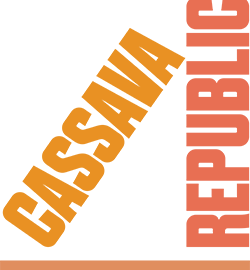The unprecedented success of the award-winning Black Panther film in 2018, and its vision of an African society untouched by slavery and colonial attacks, ignited a deep interest in stories and imaginings of pre-colonial Africa. This is unsurprising, given both the sheer spectacle of the film, and how it served as an antidote to the prevailing pessimistic depiction of Africa as a place of horror and infamy across all media.
In the past week, Hollywood has released yet another ‘African inspired’ film, The Woman King. The film centres the Agojie (also featured in Black Panther), the all-female military unit of Dahomey, a West African Kingdom in the 1800s under the reign of King Ghezo, and their fight to protect the kingdom from Portuguese slave traders and their neighbours, the Oyo Empire. As expected, this depiction of an army of “strong Black women” has the internet buzzing, with praise, attempts of balanced views andcutting critiques, and with it the question of the true history of the Kingdom’s involvement in the slave trade has been raised.
Taken in isolation, the film’s stellar performances (albeit with cringe-worthy accents), vibrant costumes and stunning scenery are of course worthy of praise. But beyond what meets the eye, it is important to examine the lens from which these stories are told, and importantly, what isn’t told. When we consider the history of the Dahomey kingdom’s role in the slave trade, it is clear that the film has chosen to whitewash history to present a simplistic “girl power” narrative, where heroes and villains are clearly delineated. How does this differ from the familiar single-track pessimistic portrayals of Africa that we are trying to move away from? Are we so starved of images of black womanhood that portraits of women used as war machines the balm we need to fill the representational void? Or do these women warriors deconstruct patriarchy’s notion of the weak female?
Black Panther and The Woman King are just the beginning, and we are sure to see more and more Africa-centric content coming out of Hollywood. This external lens means there will no doubt be more issues of homogeneity, broad stroke depictions of a diverse continent, and an uncritical re-writing of history. The existence of an extensive internal-slave trade on the continent, as well as the sub-Saharan trade in human that saw Africans along the Arabian Gulf as explored in In The Palace of Flowers, is something that is still largely kept out of the conversation around slavery. Until we have reckoned with this and more films like The Woman King, will continue to ignore the complex and messy reality history for a feel-good narrative.
Ayesha Harruna Attah’s The Hundred Wells of Salaga does not shy away from this discussion; taking place in pre-colonial Ghana it shines a light on the internal slave trade through the lives of two women, Amina, an enslaved young women, and Wurche, a slave-owner. Told through both their perspectives, the novel explores love, courage and freedom, and forces us to face uncomfortable realities. Cementing her place as a master storyteller of historical fiction, Harruna Attah’s fourth book, The Deep Blue Between, on sisterhood, separation and the slave trade comes in 2023!
